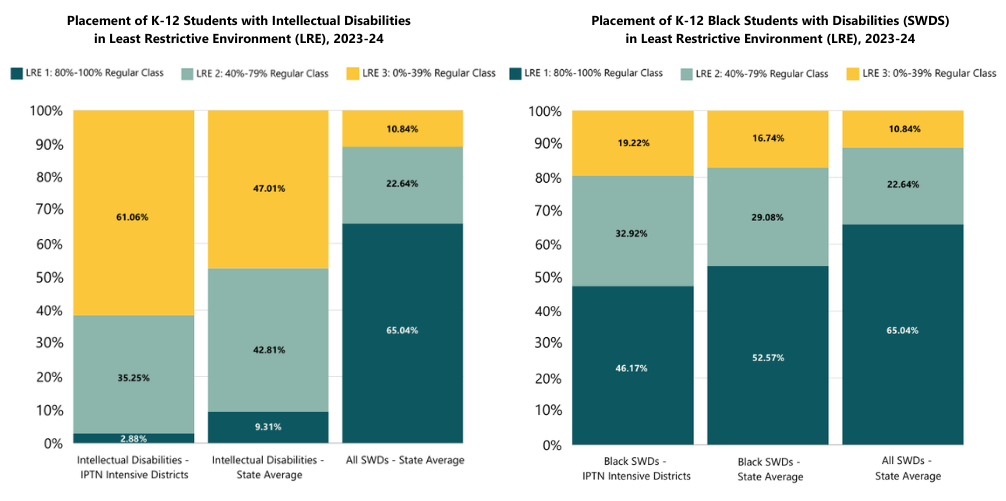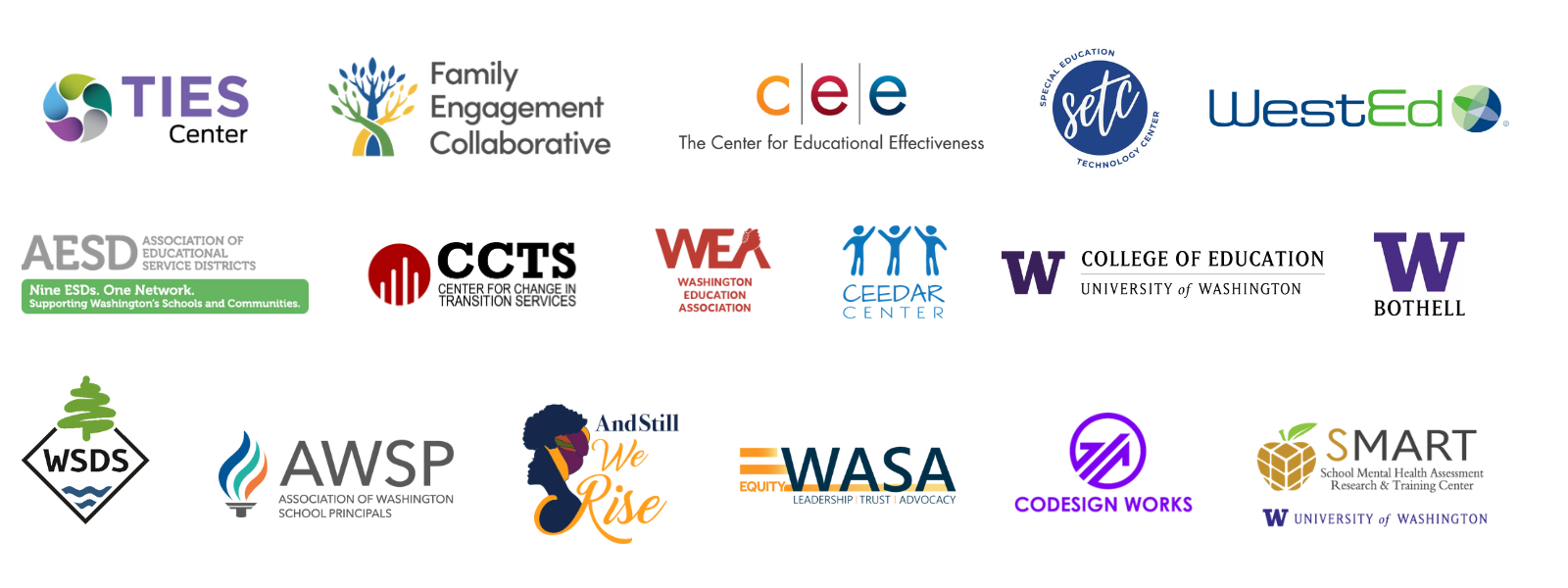
Working collectively to prevent exclusionary practices and to provide all Washington state students with choice and opportunity.
The Inclusionary Practices Technical Assistance Network (IPTN) is a collaboration between the OSPI, WestEd, and education partners across Washington state. It is more than a network; it’s a transformative force shaping the future of inclusive education.
The IPTN is designed to provide high-quality guidance, technical assistance (TA), and professional development resources to districts to disrupt segregated systems of disproportionality and reduce exclusionary practices in Washington schools. This will result in improved student outcomes, with an additional focus on the outcomes and the inclusion of students with disabilities having Intellectual or Developmental Disabilities (IDD) and for Black students with disabilities.
Learn more about how the network works and download the network overview to learn more.
The IPTN will provide high-quality guidance, technical assistance, and professional development resources to districts to disrupt segregated systems of disproportionality and reduce exclusionary practices in Washington schools. This will result in improved student outcomes, with an additional focus on the outcomes and the inclusion of students with IDD and Black students with disabilities.
Background of the IPTN
The Inclusionary Practices Project (IPP) launched in 2019 to improve inclusion rates in Washington schools. With initial state inclusion rates at 56.6%, the project raised them to 63.4% in just four years. IPP became a statewide movement -- engaging over 264 districts, providing professional development, and leading to increased choice and opportunity for students with disabilities.
In 2023, IPP transitioned into the Inclusionary Practices Technical Assistance Network (IPTN). Building on IPP's success, IPTN focuses on educational justice and equal opportunity for Washington students experiencing the most exclusion: students with Intellectual and Developmental Disabilities, and Black students with disabilities.
In addition to this focus, the efforts of inclusionary practices were joined with the statewide scale-up of Washington’s Multi-Tiered System of Supports to begin the process of developing a coherent Technical Assistance model.
Key Terms and Frequently Asked Questions
Why does the IPTN aim to focus on Black students with disabilities and students with Intellectual and Developmental Disabilities?
Across the state, only 2.88% of students with intellectual disabilities spend at least 80% of the school day in the general education setting.
52.57% of Black students with disabilities spend at least 80% of the school day in the general education setting. In comparison, 68.45% of White students with disabilities spend at least 80% of the school day in the general education setting.
The charts below compare the inclusion of students with IDD and Black students with disabilities with the inclusion rates of districts receiving intensive support from the IPTN as well as the state average of all students with disabilities.

Who This Site is for
Students and their Families: Students and Families are seen as essential partners in advancing inclusion. The network has a wealth of resources, guidance, and materials that can benefit all students within the state and their families.
Community Members: In addition to the students, families, and educators directly connected with the work of teaching and learning happening within schools, the IPTN website has resources for community members looking to better understand the strengths and needs of the state’s educational system, including ways to get involved and raise awareness of the need.
School and District Educators: Educators in Washington represent a diverse range of roles and responsibilities, from administrators and special education teachers to general education teachers, paraprofessionals, and campus support staff. Together, these dedicated professionals create teams of caring adults working to foster inclusive, rigorous, and engaging learning environments for all students. The Inclusionary Practices Technical Assistance Network (IPTN) has developed resources to equip educators with the tools they need to make schools and districts more inclusive and equitable.
The Inclusionary Practices Technical Assistance Network website is designed to inform Washingtonians of the work of the IPTN and equip different individuals and communities with ways to get involved. The IPTN Resources Center provides curated guidance and tools based on where you see yourself within Washington's system and what you may need related to this role.
Explore IPTN Resources for Students, Families, Educators, and Communities
Key Roles in the IPTN Community
- IPTN Members: State-funded providers offering tools and guidance to improve inclusionary outcomes for students, particularly Black students with disabilities and students with IDD.
- IPTN Collaborators: Organizations that provide insights and support for IPTN’s resources and priorities.
- IPTN Advisory: A steering committee offering guidance on IPTN’s activities and deliverables.
- IPTN Partner Districts: Districts committed to improving inclusionary outcomes by explicitly addressing disproportionality, using and testing IPTN resources, and providing feedback.







